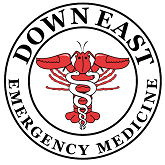Pathways to Emergency Medicine: What to Know Early in the Career Exploration Process
/Emergency medicine (EM) was first recognized as a specialty by the American Medical Association (AMA) in 1972. Since that time, EM residencies have grown and evolved to provide academic support and training for graduating medical students interested in pursuing a career in the field. Since its early days of small and scattered residency programs, EM has burgeoned to nearly 3,000 residency positions according to the 2021 Report on Residents published by the Association of American Medical Colleges (AAMC). As EM becomes an increasingly popular career choice among students, residency programs look to medical schools to provide the necessary career exploration opportunities and show students what EM has to offer.
To learn more about students’ pathways into EM as well as the ways in which medical schools can best support these paths, we surveyed the Tufts University School of Medicine’s (TUSM) 2021 graduating class of EM-bound students. Several key themes emerged from this survey:
Students repeatedly expressed how helpful having EM mentors and peers was in their choice of emergency medicine as a specialty. According to one student, “[my mentor] was huge in helping me figure out whether the field was right for me, as well as approaching the residency application/ranking process.”
Several reasons emerged as to why medical students found EM such an enticing specialty: “I didn’t have to pick a specific demographic or organ system that I saw as a third year, and it was a better fit of pace for me than internal medicine.” For another student, it was “the variety of pathology, the acuity, the pace, the availability of hands-on procedures, the intersectionality with public health and social determinants of health” that convinced him that EM was the right fit.
When students were asked if there were any additional resources that would have helped them decide on their career sooner, many expressed frustration in the overall lack of structured exposure to EM before fourth year. One student offered this advice: “If [EM] is of interest, you should seek it out, as [exposure] is not guaranteed during medical school.”
Other students suggest that EM should be included in the third year core clinical clerkships, which offer students a chance to fully immerse themselves in different specialties for 4 to 8 week blocks. While these blocks first and foremost allow students to build their clinical knowledge from the perspective of multiple different specialties, they also allow students the opportunity to discover which fields offer the challenges, lifestyle, and day-to-day operations that combine to create an engaging and enriching career. Given that two thirds of students surveyed decided on EM in the latter half of medical school, this early exposure could help students see how rewarding and unique a career in the field would be.
While medical students can certainly advocate for their own career exploration goals, medical schools can also do many things to support students and help them discover the unique and rewarding nature of a career in emergency medicine. Medical schools can support students by helping to find mentors and exposing them to EM-focused rotations. Some medical schools offer a third year rotation in emergency medicine, although these rotations vary in their length and availability. Perhaps in the future, it will become standard that full core clerkships in the emergency department are offered or even required as part of the third year curriculum. Even if the students don’t eventually pursue a career in emergency medicine, this will help students better understand and appreciate emergency medicine as an integral part of our modern healthcare system.
PEARLS FROM THIS PIECE:
If you find yourself interested in EM, find a mentor in the field early on! Look for deans, professors, or other faculty with a background in EM that you’ve met and admired along the way.
Don’t rely on third year rotations to provide enough exposure to EM; independently seek out EM-based electives, shadowing experiences, and research.
EM might be the right career choice if you:
Love a little bit of every specialty
Want to work in a high acuity setting
Are looking for a field with lots of procedures
Want a career in which you can explore and help address health disparities in your community
References
Zink, B. J. (n.d.). A Brief History of Emergency Medicine Residency Training. EMRA. Retrieved October 30, 2021, from https://www.emra.org/about-emra/history/history-of-em-residency-training/.
Association of American Medical Schools 2021 Report on Residents.











